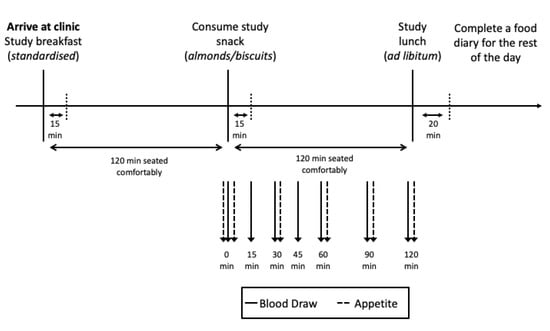Eddy Edson
Well-Known Member
- Relationship to Diabetes
- Type 2
... for "habitual snackers".
This may seem like a big nothing, but it's a bit interesting for me for the body-weight context. I'm an habitual almond-snacker - lots & lots of almonds! - and when I eat too many my weight goes up & vice versa. In fact controlling almond intake is my main body weight control-lever, sad to admit 🙂
And the result in this study is contra a lot of low-rent dietary jibber-jabber which says that somehow or other almonds are less fattening than other food with the same energy characteristics.
Obviously, nutrition outcomes are better with almonds than biscuits:
Conclusions
Almonds can be incorporated into the diets of habitual snackers to improve diet quality, without evidence for changes in body weight, compared to a popular discretionary snack food.This may seem like a big nothing, but it's a bit interesting for me for the body-weight context. I'm an habitual almond-snacker - lots & lots of almonds! - and when I eat too many my weight goes up & vice versa. In fact controlling almond intake is my main body weight control-lever, sad to admit 🙂
And the result in this study is contra a lot of low-rent dietary jibber-jabber which says that somehow or other almonds are less fattening than other food with the same energy characteristics.
Obviously, nutrition outcomes are better with almonds than biscuits:
Results
The difference in changes for body weight from baseline to 12 months was not statistically significant (geometric means 67.1 kg and 69.5 kg for almonds and 66.3 kg and 66.3 kg for biscuits, P = 0.275). There were no statistically significant differences in changes for body composition or other non-dietary outcomes (all P ≥ 0.112). Absolute intakes of protein; total, polyunsaturated, and monosaturated fat; fibre; vitamin E; calcium; copper; magnesium; phosphorous; and zinc, and % TE from total monounsaturated, and polyunsaturated fat statistically significantly increased from baseline (all P ≤ 0.033), while % TE from carbohydrate and sugar statistically significantly (both P ≤ 0.014) decreased from baseline, in the almond compared to the biscuit group.
Last edited:

